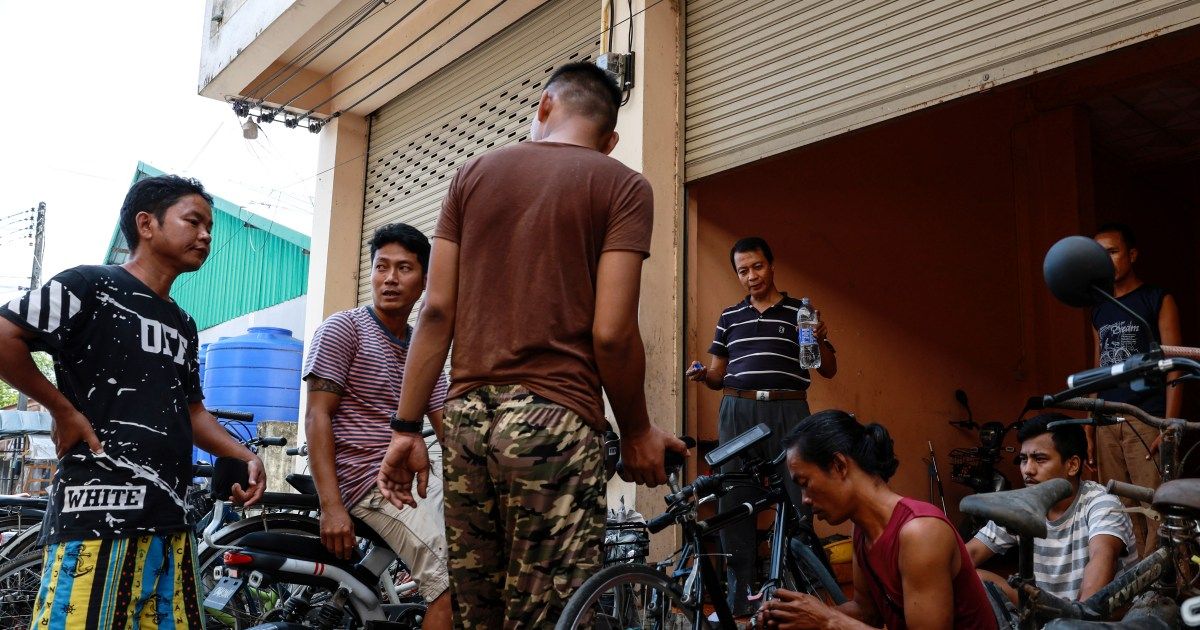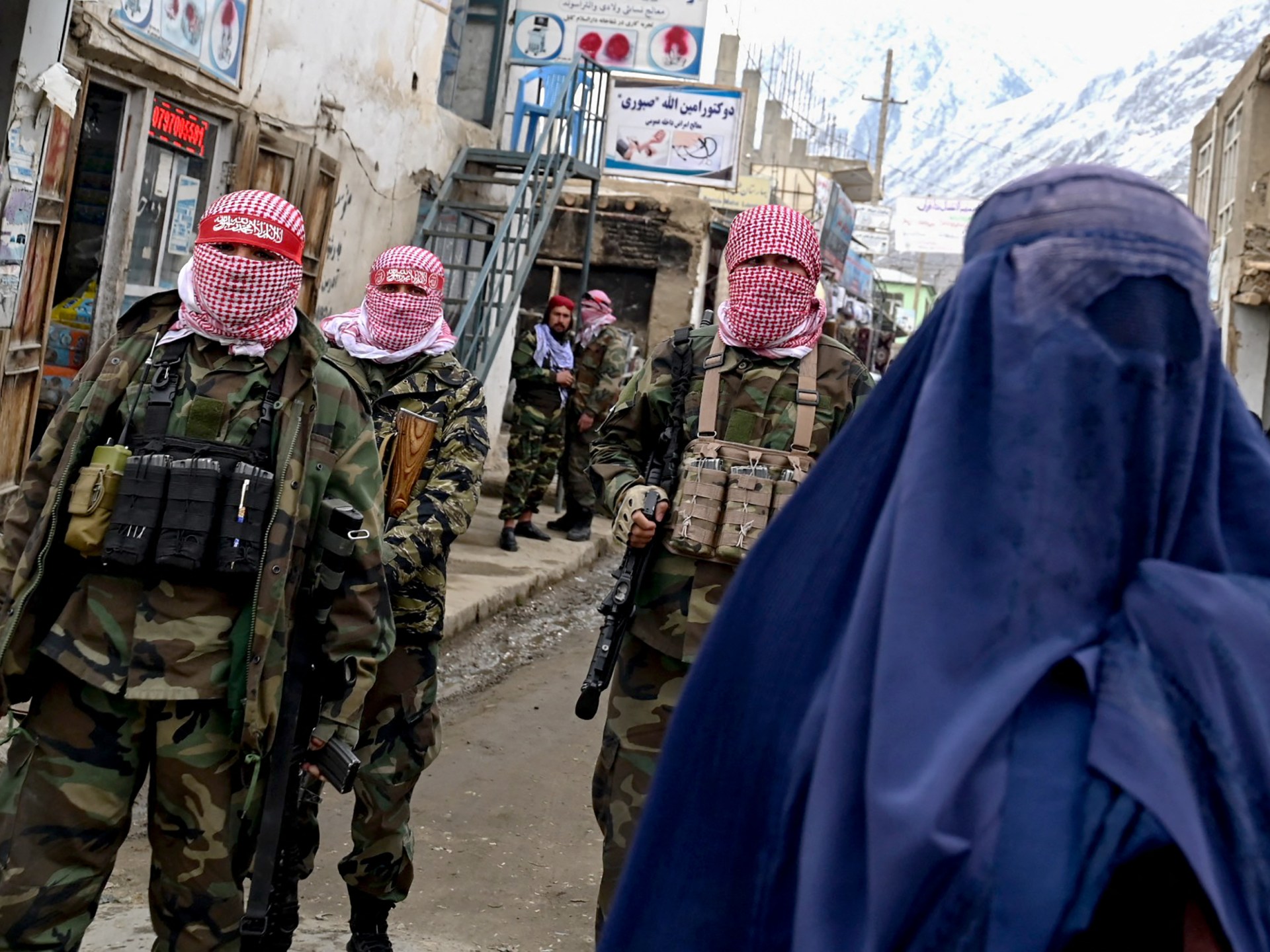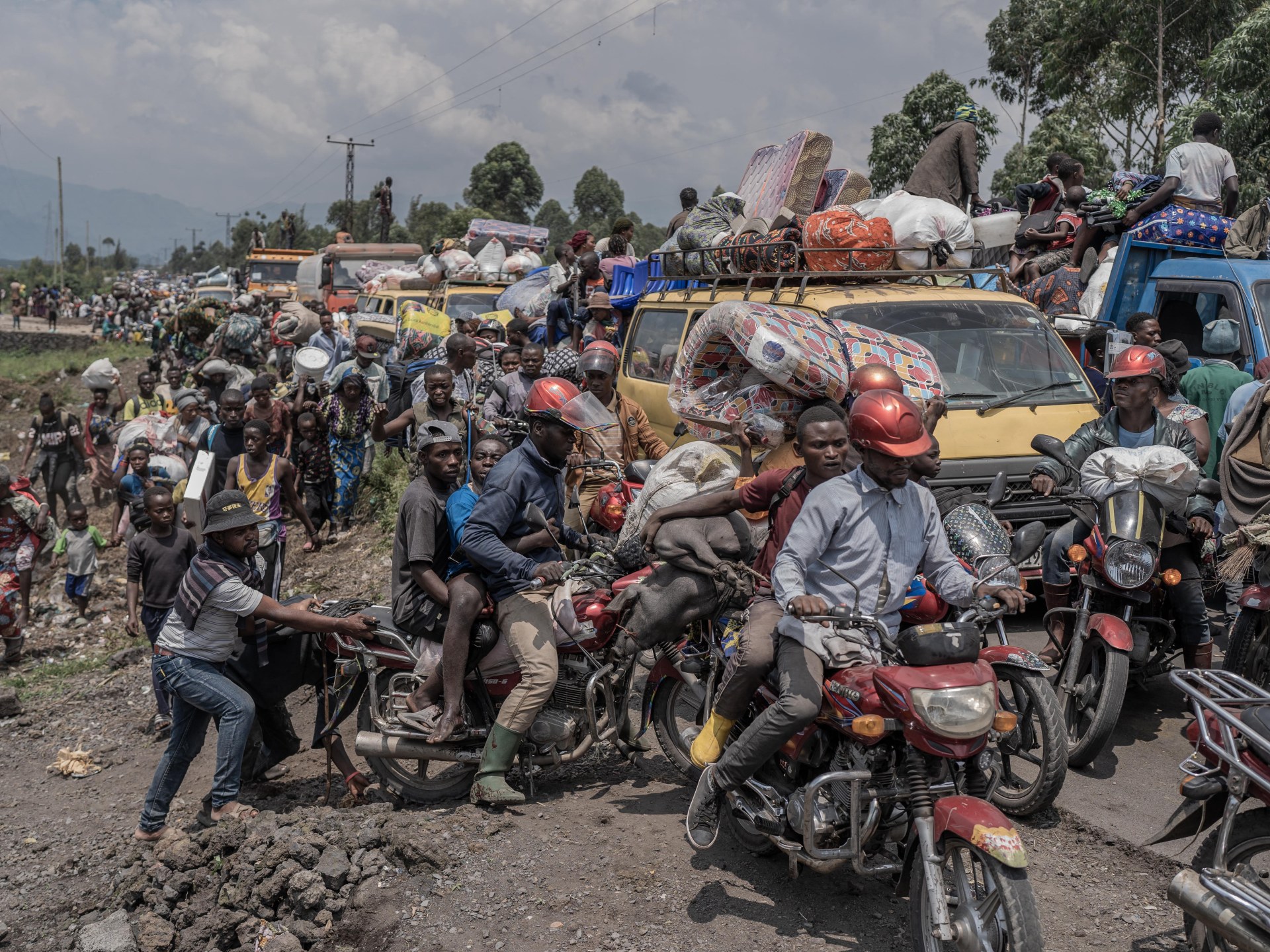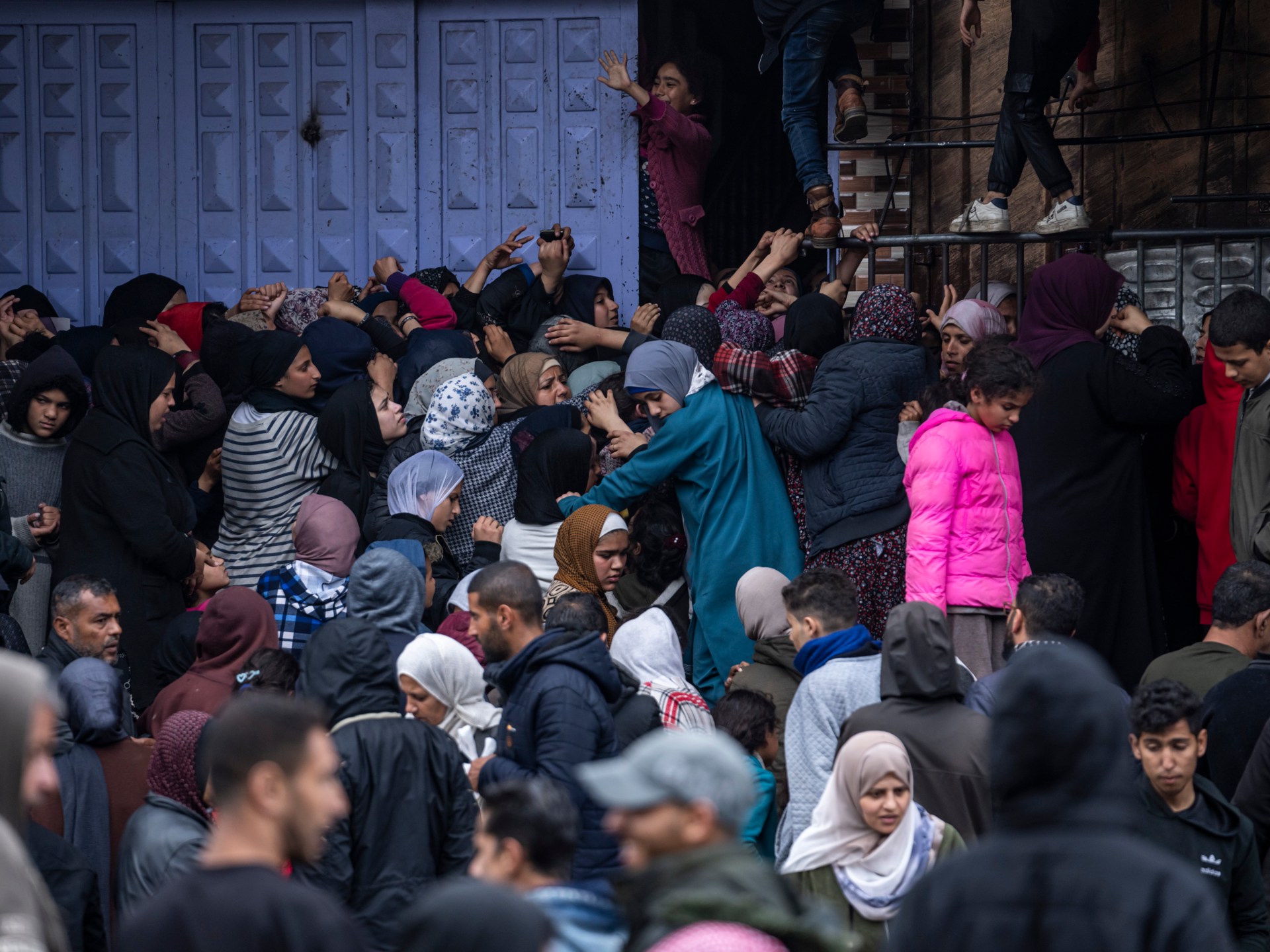Myanmar-Thailand border – In a secret meeting above a cafe in a town on the Myanmar-Thai border, Ko Aye examined the inside of an Android phone along with 10 fellow defectors from Myanmar's military and police forces.
The trainer, a former captain in the Myanmar army, guided the group through the process of repairing a mobile phone, a skill that could help them build a future beyond the conflict they recently left behind.
Having fled the notorious institutions they were once a part of, these former police officers and soldiers now live in Thailand, near the border with Myanmar, where they are learning new skills to adapt to peaceful civilian life.
“If Myanmar ever achieves peace, I will come back and repair phones there,” said Ko Aye, a transgender man, for whom the workshops mark a new chapter in a resilient life journey.
“Although I'll have to practice on some ripped ones at home first,” Ko Aye added with a smile, wearing one of his homemade tie-dyed T-shirts, a trade he taught himself to earn money.
Ko Aye, 31, was mocked by colleagues for her gender during her time as an airport police officer and defected after Myanmar's military coup in February 2021.
He retrained as a doctor in the country's pro-democracy resistance movement and it was during this time that Ko Aye witnessed firsthand the devastation of airstrikes against civilians resisting military rule in Myanmar. .
Eventually, Ko Aye fled to Thailand in search of safety and mental recovery.
He is now part of the first group of graduates of a vocational training program launched by People's Goal, an advocacy group for military deserters.
In addition to repairing cell phones, the program offers training in bicycle, electric bicycle and motorcycle repair, skills that can help forge a new path for those who have participated in years of war.
![A repair instructor, a former Myanmar navy personnel, left, and a regime defector, repair a bicycle during an electric bicycle and bicycle repair workshop near the Thai-Myanmar border on November 1, 2024. [Valeria Mongelli/Al Jazeera]](https://www.aljazeera.com/wp-content/uploads/2024/11/Myanmar-skills-2-1732265034.jpg?w=770&resize=770%2C513)
'Our main objective is to give hope'
Many Myanmar military deserters struggle to find work and accommodation when they arrive in Thailand after fleeing Myanmar. They lack legal residency, exacerbating fears of being arrested by Thai immigration authorities and deported back to their country, where they could face torture, long prison sentences or even execution.
Fearing the infiltration of military spies in their midst, most soldiers-turned-students in the skills training program prefer to use aliases to protect their identities and protect their families from any possible retaliation at home.
“Our main goal is to give hope to people who want to defect,” said Naung Yoe, 40, a former army major who defected three years ago.
It explains how People's Goal also offers shelters, counseling and political education on democracy and human rights to former members of the armed forces.
![Naung Yoe, 40, one of the directors of People's Goal, at a training center near the Thai-Myanmar border on November 1, 2024. [Valeria Mongelli/Al Jazeera]](https://www.aljazeera.com/wp-content/uploads/2024/11/Naung-Yoe-1732263279.jpg?w=770&resize=770%2C513)
Naung Yoe, one of the organization's five directors, said the training courses also serve as a beacon for soldiers who are contemplating desertion, as members of the military often worry about what's happening to them. awaits them and their families outside the cloistered military world.
Myanmar is approaching its fourth year of widespread civil war, which erupted after the military overthrew Aung San Suu Kyi's elected government in 2021, detained civilian leaders and then killed people peacefully protesting against the country's takeover. of the army.
According to United Nations researchers, reports of systematic torture, gang rapes and child abuse have increased under military rule.
On both sides of Myanmar's conflict, thousands of young people have been shaped by years of brutality.
A generation traumatized and desensitized to violence, with its education interrupted and its easy access to weapons, presents immense challenges for its reintegration into civilian life.
Naung Yoe estimated that by December 2023, approximately 10,000 police officers and 3,900 military personnel had defected or surrendered following the coup. He believes the number has since exceeded 15,000, although it is impossible to verify the exact figure.
People's Goal is also unable to verify whether a former soldier who approaches them for training has been involved in war crimes, nor can it sanction them for such involvement.
“In general, those who have committed war crimes are unlikely to defect,” Naung Yoe said. “They never feel safe outside the military.”
However, if a former soldier confesses to his crimes, the organization will pass information to investigators at international tribunals seeking evidence of such crimes committed by the Myanmar military, Naung Yoe said.
“Defections weaken [the] regime, and after the revolution, all those who have committed crimes will have to face justice, in some way,” he added.
Former soldiers and analysts say Myanmar's military brutalizes troops, conditioning them to believe its bloody actions are just, but access to social media and smartphones has diluted that indoctrination.
Naung Yoe explained that soldiers – who are closely watched by their superiors – have less access to information than the majority of the population, but are still aware that the military is killing civilians.
“Those who were quite opposed to the killings defected,” he told Al Jazeera.
“But some dropouts have gaps in their knowledge. That is why we offer training on democracy and work with civil organizations to help them learn.”
'Now only power and military pressure'
Phone repair trainer Thet Oo, 30, a former army captain, told Al Jazeera he was skeptical about whether vocational training could encourage potential deserters.
Although he is willing to teach soldiers and police who defected later than others, Thet Oo said he has little time for those “who have not supported the people” and remain in the army.
“I am conducting this training to help dropouts support themselves and improve their lives,” he said.
“Enough time has passed for people to defect or not,” he added.
“Now only military power and pressure will lead to more defections and surrenders.”
In an alley noisy with the whistling of mynahs, the chatter of tea shops and the clash of metal, in a scene reminiscent of Yangon, Myanmar's largest city about 420 kilometers (260 miles) to the west, three deserters tinkered with an electric bicycle.
Among them was Zaw Gyi, 46, a former non-commissioned officer with 21 years in the army, who for the past month has been attending a mechanics course six days a week.
![Zaw Gyi, 46, a defector from the Myanmar regime, is pictured during an electric bicycle repair shop near the Thai-Myanmar border on November 1, 2024. [Valeria Mongelli/Al Jazeera]](https://www.aljazeera.com/wp-content/uploads/2024/11/myanmar-skills-4-1732266108.jpg?w=770&resize=770%2C513)
“I couldn't do anything but pray to get this opportunity because they chose from so many applicants,” said Zaw Gyi, who has relied on sporadic construction jobs in Thailand since he defected and fled Myanmar in May 2022.
“Despite the lack of trust, people still help deserters, so we have to be a good example for those who look at us with suspicion, an example that we can live together in harmony,” he said.
Back in the phone repair class, Ko Aye said the training has given him opportunities for new friendships.
“We can understand and help each other,” he said.
One of his closest friends – his brother – also deserted the army. But he was captured by the army before he could escape the country.
“We don't know if he is alive or dead,” Ko Aye said. Still, he is sure that making the decision to defect was the right decision for his brother.
“As police officers, we should be public servants,” he added.
“We should not threaten or kill. “That is what is happening in Myanmar.”
![A training instructor and deserters from the Myanmar military and police take part in an electric bicycle and bicycle repair workshop near the Thai-Myanmar border on November 1, 2024. [Valeria Mongelli/Al Jazeera]](https://www.aljazeera.com/wp-content/uploads/2024/11/Myanmar-skills-training-1732262849.jpg?w=770&resize=770%2C513)












